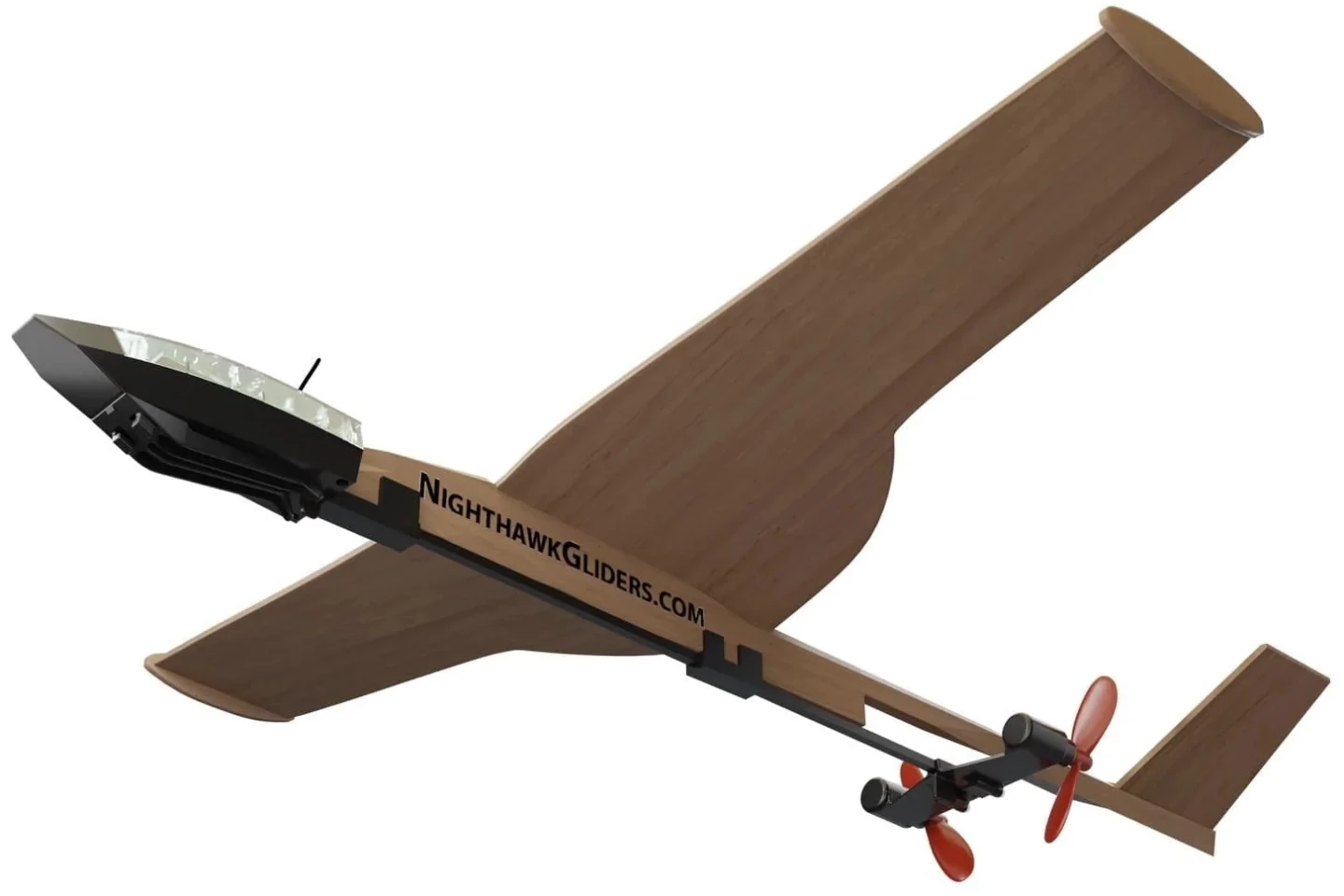Many readers may fondly recall building rubber-band-powered balsa wood model airplanes. While the things were kinda cool, they didn't fly for long, nor could they be remotely controlled. Such is not the case, however, with the new Tornado Updraft 12.
The remote-control aircraft comes in the form of an assemble-it-yourself kit, and is the result of a collaboration between US companies Nighthawk Gliders and PowerUp Toys. While the former designed the balsa wood body, the latter supplied the PowerUp 4.0 electric drive module.
The result of a successful Kickstarter campaign, the 4.0 module can also be added to user-folded paper airplanes. PowerUp additionally offers it in kits that include lightweight foam airplane bodies.
Users wirelessly control the 4.0 (and thus the aircraft that it's a part of) via Bluetooth, utilizing an accompanying iOS/Android app. The module's nose unit contains a lithium-polymer battery, microprocessor, accelerometer and gyroscope. A carbon fiber shaft links that unit to two motors/propellers in the rear.
Increasing or decreasing the thrust of both motors simultaneously causes the aircraft to climb or descend, while varying their thrust individually causes the plane to turn left or right. Additionally, if the 4.0 module's flight control system detects that the aircraft is about to stall or nosedive, it automatically adjusts the thrust to keep that from happening.

As far as basic specs go, the Tornado Updraft 12 is 8.6 inches long (218 mm), weighs just 19 grams, can be controlled up to a distance of 240 ft (73 m), and has a top flight speed of 20 mph (32 km/h). One 25- to 30-minute charge of its battery is claimed to be good for up to 10 minutes of flight time. Other features include add-on landing gear – which allows the plane to take off from the ground, instead of just being hand-launched – and LED lights, to make it visible at night.
It's available now via the PowerUp website, priced at US$105.
Source: PowerUp Toys







